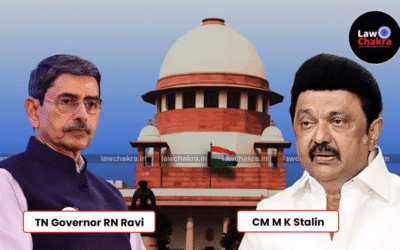BNS Section 143 – Trafficking of person
IPC Section – 370
Trafficking of person
(1) Whoever, for the purpose of exploitation, recruits, transports, harbours, transfers, or receives, a person or persons, by
(a) using threats; or
(b) using force, or any other form of coercion; or
(c) by abduction; or
(d) by practicing fraud, or deception; or
(e) by abuse of power; or
(f) by inducement, including the giving or receiving of payments or benefits, in order to achieve the consent of any person having control over the person recruited, transported, harboured, transferred or received, commits the offence of trafficking.
Explanation 1
The expression “exploitation” shall include any act of physical exploitation or any form of sexual exploitation, slavery or practices similar to slavery, servitude, beggary or forced removal of organs.
Explanation 2
The consent of the victim is immaterial in determination of the offence of trafficking.
(2) Whoever commits the offence of trafficking shall be punished with rigorous imprisonment for a term which shall not be less than seven years, but which may extend to ten years, and shall also be liable to fine.
(3) Where the offence involves the trafficking of more than one person, it shall be punishable with rigorous imprisonment for a term which shall not be less than ten years but which may extend to imprisonment for life, and shall also be liable to fine.
(4) Where the offence involves the trafficking of a child below the age of eighteen years,it shall be punishable with rigorous imprisonment for a term which shall not be less than ten years, but which may extend to imprisonment for life, and shall also be liable to fine.
(5) Where the offence involves the trafficking of more than one child below the age of eighteen years, it shall be punishable with rigorous imprisonment for a term which shall not be less than fourteen years, but which may extend to imprisonment for life, and shall also be liable to fine.
(6) If a person is convicted of the offence of trafficking of child below the age of eighteen years on more than one occasion, then such person shall be punished with imprisonment for life, which shall mean imprisonment for the remainder of that person’s natural life, and shall also be liable to fine.
(7) When a public servant or a police officer is involved in the trafficking of any person then, such public servant or police officer shall be punished with imprisonment for life, which shall mean imprisonment for the remainder of that person’s natural life, and shall also be liable to fine.
Trafficking of Person (BNS-143)
1. What is Trafficking?
Human trafficking is defined as the act of recruiting, transporting, harboring, transferring, or receiving individuals with the intent of exploitation.
- Methods: Threats, force, coercion, abduction, fraud, deception, abuse of power, or inducement (through payments or benefits) to control the person.
- Exploitation: Includes physical or sexual exploitation, slavery, servitude, beggary, or the forced removal of organs.
- Consent: The victim’s consent is irrelevant and does not excuse the crime.
2. Punishments for Trafficking
a. Basic Offence
- Offence: Trafficking of a person.
- Punishment:
- Rigorous Imprisonment: Not less than 7 years, which may extend to 10 years, and
- Fine.
- Type of Offence:
- Cognizable: Police can arrest without a warrant.
- Non-bailable: The accused cannot claim bail as a right.
- Court: The case will be tried by the Court of Session.
b. Trafficking of More Than One Person
- Offence: Trafficking of more than one person.
- Punishment:
- Rigorous Imprisonment: Not less than 10 years, which may extend to life imprisonment, and
- Fine.
- Type of Offence:
- Cognizable: Police can arrest without a warrant.
- Non-bailable: The accused cannot claim bail as a right.
- Court: The case will be tried by the Court of Session.
c. Trafficking of a Child
- Offence: Trafficking of a child below 18 years.
- Punishment:
- Rigorous Imprisonment: Not less than 10 years, which may extend to life imprisonment, and
- Fine.
- Type of Offence:
- Cognizable: Police can arrest without a warrant.
- Non-bailable: The accused cannot claim bail as a right.
- Court: The case will be tried by the Court of Session.
d. Trafficking of More Than One Child
- Offence: Trafficking of more than one child.
- Punishment:
- Rigorous Imprisonment: Not less than 14 years, which may extend to life imprisonment, and
- Fine.
- Type of Offence:
- Cognizable: Police can arrest without a warrant.
- Non-bailable: The accused cannot claim bail as a right.
- Court: The case will be tried by the Court of Session.
3. Enhanced Punishments for Repeat Offenders and Public Officials
- Repeat Offenders: If a person is convicted of trafficking children more than once, they face life imprisonment for the remainder of their life.
- Public Officials: If a public servant or police officer is involved in trafficking, they face life imprisonment for the remainder of their life, along with a fine.
Summary of Offences and Punishments
| Offence | Punishment | Cognizable/Non-cognizable | Bailable/Non-bailable | Court |
|---|---|---|---|---|
| Trafficking of a person | 7 to 10 years rigorous imprisonment and fine | Cognizable | Non-bailable | Court of Session |
| Trafficking of more than one person | 10 years to life imprisonment and fine | Cognizable | Non-bailable | Court of Session |
| Trafficking of a child | 10 years to life imprisonment and fine | Cognizable | Non-bailable | Court of Session |
| Trafficking of more than one child | 14 years to life imprisonment and fine | Cognizable | Non-bailable | Court of Session |
4. Purpose of the Law
- The law aims to prevent and punish human trafficking, especially the exploitation of children.
- It ensures strict penalties to deter such crimes and protect vulnerable individuals from harm.


